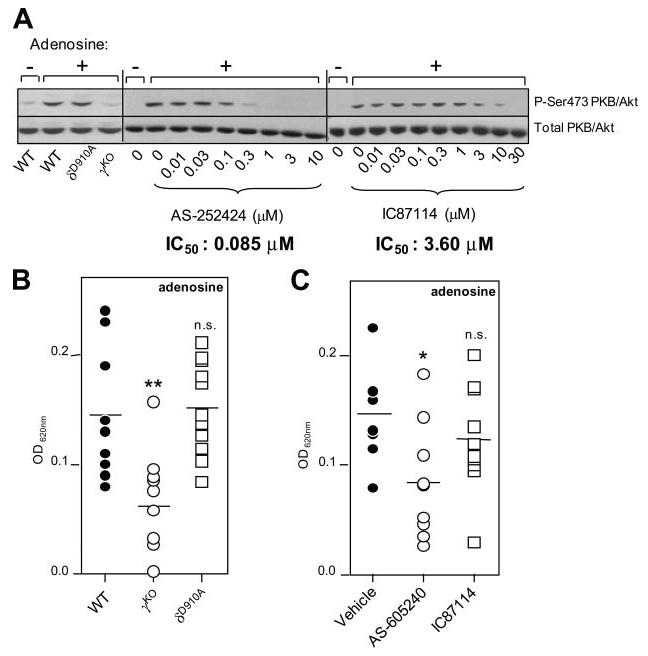FIGURE 2.

Effect of p110γ or p110δ inhibition on adenosine-dependent Akt/PKB phosphorylation in mast cells and on adenosine-dependent vascular permeability. A (Left panel), γKO and δD910A BMMCs were stimulated with adenosine or vehicle (control) and Akt/PKB phosphorylation assessed by Western blotting, as described in Materials and Methods. A representative blot of two independent experiments is shown. Middle and right panels, BMMCs were pretreated for 30 min with varying concentrations of inhibitors, followed by adenosine stimulation for 1 min and immunoblotted for Akt/PKB (phospho-Ser473 or total). IC50 values were determined by ratiometric analysis of immunoblots, for which Akt/PKB phosphorylation was calculated as the ratio between phosphorylated Akt/PKB and total Akt/PKB for each lane and expressed as the percentage of Akt/PKB phosphorylation in the absence of inhibitor (data not shown). A representative immunoblot of three independent experiments is shown. B, Impact of genetic inactivation of p110γ or p110δ on adenosine-induced PCA response in vivo. Number of mice used: WT and γKO, n = 10 each; and δD910A, n = 11. C, Impact of pharmacological inactivation of p110γ or p110δ on adenosine-induced PCA response in vivo. Number of WT mice dosed with AS605240, n = 9 or IC87114, n = 9.
